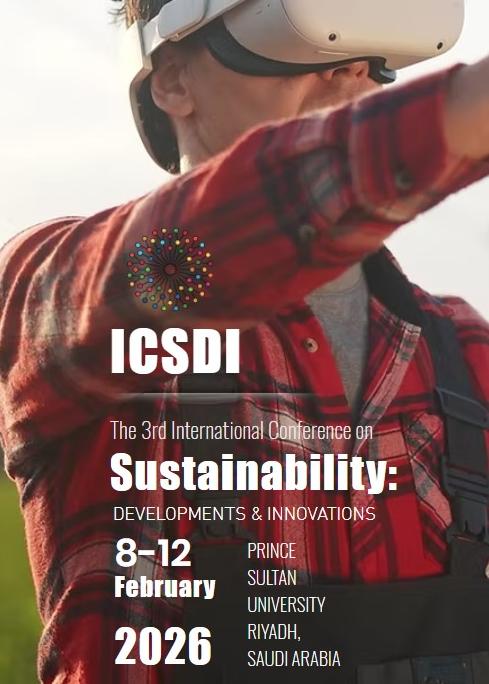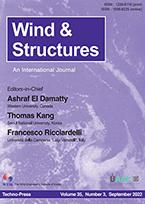50th ISTANBUL World Congress on Studies on “Arts, Humanities & Social Sciences” (SAHSS-25) Dec. 15-17, 2025 Istanbul (Türkiye)
SAHSS-25
- URL: https://earhm.org/conference/305
- Event Date: 2025-12-15 ~ 2025-12-17
- Submission Date: 2025-12-01
- Organizer: EARHM
- Location: Istanbul, Turkey
Human Resources & Organizations Humanities, Literature & Arts (General) Visual Arts Crafts, Design & Arts Drama & Theater Arts English Language & Literature Human Resources & Organizations Social Sciences (General) Social Work Human Rights
Topics/Call for Papers
Topics of interest for submission include any topics related to:
I. Language, Literature & Linguistics
- Literary Criticism & Theory: Contemporary approaches to analyzing literature from diverse cultural and theoretical standpoints.
- Comparative Literature & World Literatures: Cross-cultural studies of literary traditions and genres.
- Linguistics & Sociolinguistics: The study of language structure, use, and its relationship with society, culture, and identity.
- Language Acquisition & Bilingualism/Multilingualism: Research into how individuals learn languages and the societal implications of linguistic diversity.
- Translation Studies: The theory and practice of translation and its role in intercultural communication.
II. Arts & Culture in Society
- Artistic Expression & Social Change: How art, music, literature, and performance reflect, critique, and drive social, political, and cultural transformations.
- Cultural Heritage & Memory Studies: Preservation, interpretation, and impact of tangible and intangible cultural heritage; the construction and politics of collective memory.
- Media & Communication Studies:
- The influence of traditional and new media on public discourse, identity, and social behavior.
- Digital literacies, misinformation, and the ethics of communication in the digital age.
- Representation of diverse identities in media.
- Popular Culture & Everyday Life: Analysis of popular culture forms (film, television, music, gaming) as reflections of societal values, beliefs, and practices.
- Aesthetics & Philosophy of Art: Exploring philosophical questions about beauty, creativity, artistic value, and the nature of artistic experience.
- Arts Education & Arts in Society: The role of arts education in fostering creativity, critical thinking, and social-emotional development; the impact of arts on community well-being.
III. Human Experience & Identity
- Gender, Sexuality & Identity: Intersectional studies of gender, sexual orientation, and diverse identities (e.g., non-binary, asexual) in historical, cultural, and social contexts.
- Race, Ethnicity & Belonging: Examining issues of race, racism, ethnicity, migration, diaspora, and the construction of national and global identities.
- Disability Studies: Cultural representations of disability, social models of disability, and accessibility in arts, education, and society.
- Childhood, Youth & Aging Studies: Socio-cultural perspectives on different life stages and their associated challenges and opportunities.
- Psychology of Human Behavior: Social psychology, cognitive psychology, developmental psychology, and their intersection with humanities and social contexts.
- Emotions & Affect Studies: The role of emotions in human experience, social interaction, and artistic expression.
IV. Social Structures, Governance & Justice
- Sociology & Anthropology: Studies of social structures, institutions, cultural practices, and human interactions.
- Political Science & Governance: Analysis of political systems, public policy, international relations, and the dynamics of power.
- Law & Justice Studies:
- Legal history, philosophy of law, and the social impact of legal systems.
- Human rights, social justice, and movements for equality.
- Criminology and the sociology of deviance.
- Economics & Society: Social and cultural dimensions of economic systems, poverty, inequality, and sustainable development.
- Urban & Rural Studies: Socio-cultural dynamics of urban and rural environments, gentrification, community development, and sustainable living.
- Globalization & Transnationalism: The impact of global flows (people, goods, ideas) on local cultures, national identities, and international relations.
V. Education & Pedagogy
- Philosophy of Education: Foundational theories and ethical considerations guiding educational practices.
- Curriculum & Pedagogy: Innovative teaching methods, interdisciplinary curriculum design, and assessment strategies across educational levels.
- Educational Psychology: Learning theories, cognitive development, and the psychology of teaching and learning.
- Inclusive Education & Equity: Strategies for creating equitable and accessible learning environments for all students, addressing issues of diversity and disadvantage.
- Teacher Education & Professional Development: Preparing educators for diverse educational contexts and evolving pedagogical challenges.
- Higher Education Studies: Governance, funding, access, and the role of universities in society.
- Lifelong Learning & Adult Education: Promoting continuous learning throughout the lifespan.
- Environmental Education & Sustainability Pedagogy: Teaching about environmental challenges and fostering sustainable practices from humanistic and social science perspectives.
VI. Historical Perspectives & Memory
- Historiography & Historical Methodology: Debates on how history is written, interpreted, and presented.
- Oral History & Public History: Methods for collecting and disseminating personal narratives and engaging broader publics with historical understanding.
- Archaeology & Material Culture: Uncovering past human societies through the study of material remains.
- Post-Conflict Societies & Reconciliation: The role of historical memory, truth, and reconciliation in healing and rebuilding after conflict.
- Biography & Autobiography: Exploring individual lives as lenses for understanding broader historical and social contexts.














